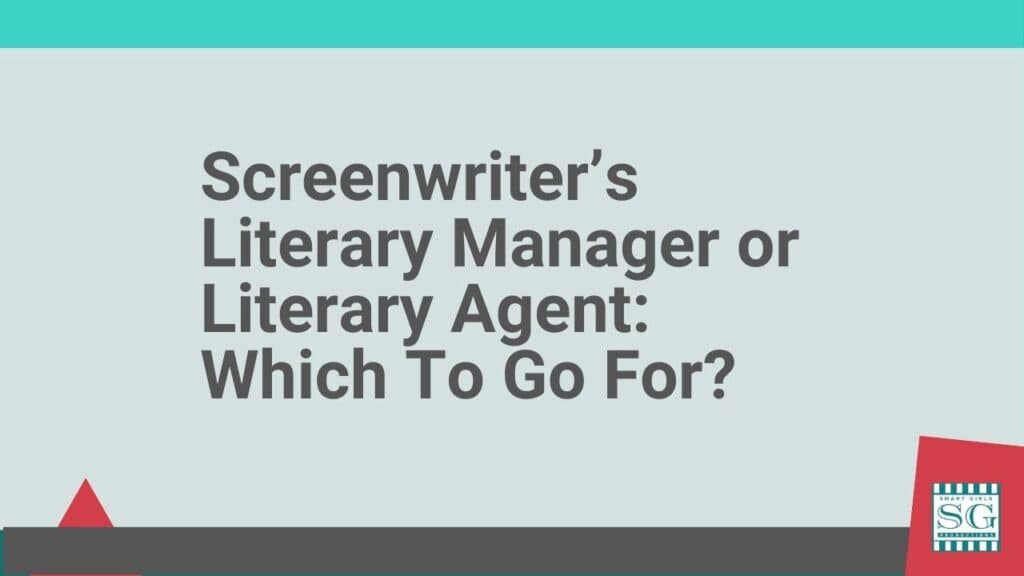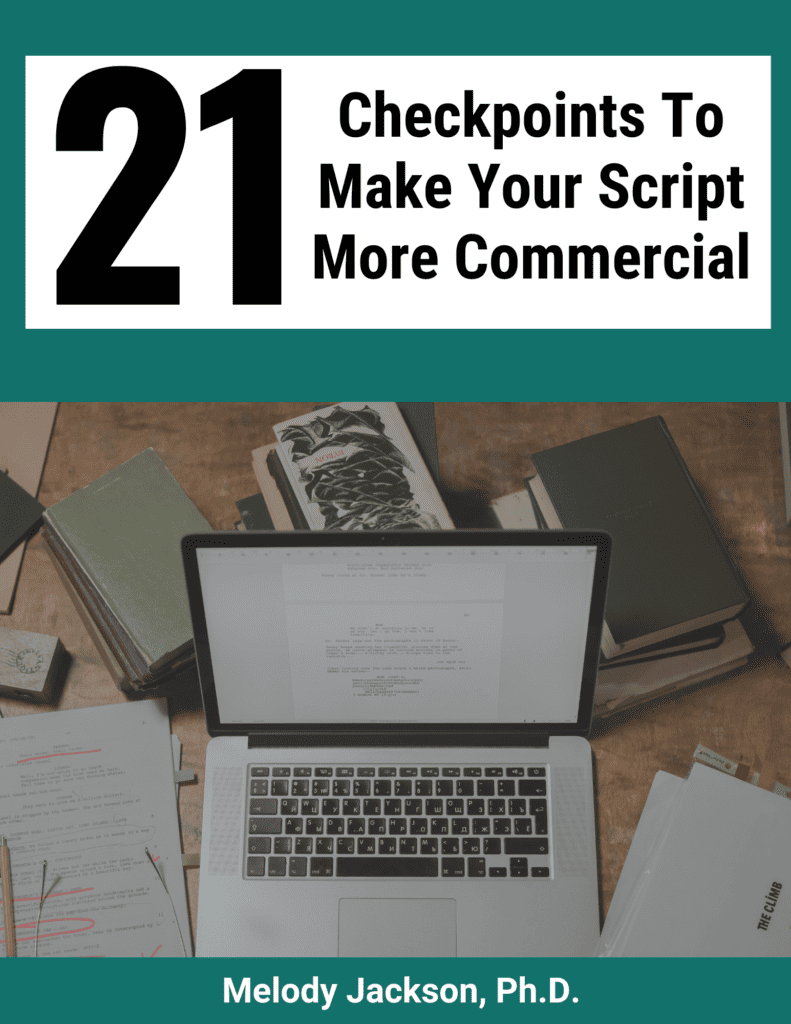
For screenwriters who want a career in screenwriting, most will eventually need a good Literary Manager or Literary Agent who can get you into offices and set up meetings with producers you can’t get to on your own.
But which should you go for first: A literary manager or a literary agent?
Before I answer that question, I must address an elephant that I see in the room, and that is should you even try to get representation at all if you have no credits?
While this present article focuses a bit more on the basic difference between a literary agent and literary manager, I defintely recommend you read this article too:
Is It Better To Market Your Script To Producers, Literary Agents, Or Literary Managers First?; it goes over the strategy of choosing whether to go to producers first or to get your representation in place.
Now let’s get to the key differences of a
literary agent and
literary manager.
A
literary manager can guide you through the whole process, from writing the script or screenplay to signing the deal. With them, you work more closely on all aspects of your career.
A
literary agent markets and sells your screenplay. They are legally permitted to secure employment for their client writer. They focus more on selling your work and less on working closely with you.
Now, which is better for you to pursue first? We recommend you pursue a literary manager before a literary agent. But if you’re new we recommend you don’t approach them first but instead target producers first. Go to this article on
producers versus literary representation to find out why.
It’s time now to see the differences or the pros and cons of literary agents and managers.
- First and foremost, it is easier to get read by a literary manager than an agent, so you have a better chance of getting representation if you go for a literary manager.
- A Literary manager helps you with everything in your career, from when the script is in the initial phase of development to the time you sign the deal and the movie gets produced, so you have a partner the whole time.
- Literary managers are career-oriented for their writers and concentrate on developing your career, while agents are more deal-oriented.
- Agents are interested in selling your screenplay and wait for you to complete the screenplay, but literary managers guide you in developing the script, in addition to shopping it.
- In choosing the services of a Literary Agent, you benefit from only them. But when you get a literary manager, they can help you get an agent. If you are not an instant hit, the agent may “forget” you, but the literary manager can help you get a new agent if the current one doesn’t get the job done.
- Literary managers can produce films, so they may try to package and produce your film themselves. There are many examples of this in Hollywood.
- A benefit for WGA Literary Agents over Lit Managers, and that is that they must abide by the terms of the WGA contract to represent a WGA writer, so ideally, that means the WGA has your back and they have done some of the vetting for you.
- Agencies have to be licensed by the state so they can negotiate on your behalf, which means they’ve also put up a bond to do so, while managers are not supposed to actually negotiate unless they have also been licensed by the state. The licensing is another level of vetting.
In the end, there are schmucks in every business… even if they are franchised by the WGA and licensed by the state. If you’re really worried about it, you can get an attorney to check everything out — but you should choose an entertainment attorney who knows the film and tv business. On the other hand, common sense will go a long way as well.
And there you have it! These are just a few of the benefits and trade-offs of getting Literary Management versus a Literary Agent.
Be sure to check out the article:
Is It Better To Market Your Script To Producers, Literary Agents, Or Literary Managers First? as it makes the case for actually marketing to producers first in most cases.
If you’re not sure what to do and would rather get guidance, you can choose one or more
screenwriting career strategy sessions at very reasonable rates. In these sessions, you will meet on the phone or on Zoom with me (Dr. Melody Jackson) to discuss how to take maximum advantage of your specific situation, including professional work you’ve done (if any) and the scripts you have ready to go.
Go here to check out the
strategy session options.
If you are ready to market to producers, you can also check out details on our
Query Letter Marketing to Producers page to learn how we’ve helped thousands of writers get their scripts into the hands of Hollywood Production companies.
If you’re not sure what would be the best approach for you but you’re ready to take action within a couple weeks, then call me directly at (818) 907-6511 or email me at smartgirls@smartg.com and we can discuss your specific situation. But only call me when you’re ready to do something within a week or so!
I look forward to working with you soon!
 For screenwriters who want a career in screenwriting, most will eventually need a good Literary Manager or Literary Agent who can get you into offices and set up meetings with producers you can’t get to on your own.
But which should you go for first: A literary manager or a literary agent?
Before I answer that question, I must address an elephant that I see in the room, and that is should you even try to get representation at all if you have no credits?
While this present article focuses a bit more on the basic difference between a literary agent and literary manager, I defintely recommend you read this article too: Is It Better To Market Your Script To Producers, Literary Agents, Or Literary Managers First?; it goes over the strategy of choosing whether to go to producers first or to get your representation in place.
Now let’s get to the key differences of a literary agent and literary manager.
A literary manager can guide you through the whole process, from writing the script or screenplay to signing the deal. With them, you work more closely on all aspects of your career.
A literary agent markets and sells your screenplay. They are legally permitted to secure employment for their client writer. They focus more on selling your work and less on working closely with you.
Now, which is better for you to pursue first? We recommend you pursue a literary manager before a literary agent. But if you’re new we recommend you don’t approach them first but instead target producers first. Go to this article on producers versus literary representation to find out why.
It’s time now to see the differences or the pros and cons of literary agents and managers.
For screenwriters who want a career in screenwriting, most will eventually need a good Literary Manager or Literary Agent who can get you into offices and set up meetings with producers you can’t get to on your own.
But which should you go for first: A literary manager or a literary agent?
Before I answer that question, I must address an elephant that I see in the room, and that is should you even try to get representation at all if you have no credits?
While this present article focuses a bit more on the basic difference between a literary agent and literary manager, I defintely recommend you read this article too: Is It Better To Market Your Script To Producers, Literary Agents, Or Literary Managers First?; it goes over the strategy of choosing whether to go to producers first or to get your representation in place.
Now let’s get to the key differences of a literary agent and literary manager.
A literary manager can guide you through the whole process, from writing the script or screenplay to signing the deal. With them, you work more closely on all aspects of your career.
A literary agent markets and sells your screenplay. They are legally permitted to secure employment for their client writer. They focus more on selling your work and less on working closely with you.
Now, which is better for you to pursue first? We recommend you pursue a literary manager before a literary agent. But if you’re new we recommend you don’t approach them first but instead target producers first. Go to this article on producers versus literary representation to find out why.
It’s time now to see the differences or the pros and cons of literary agents and managers.


